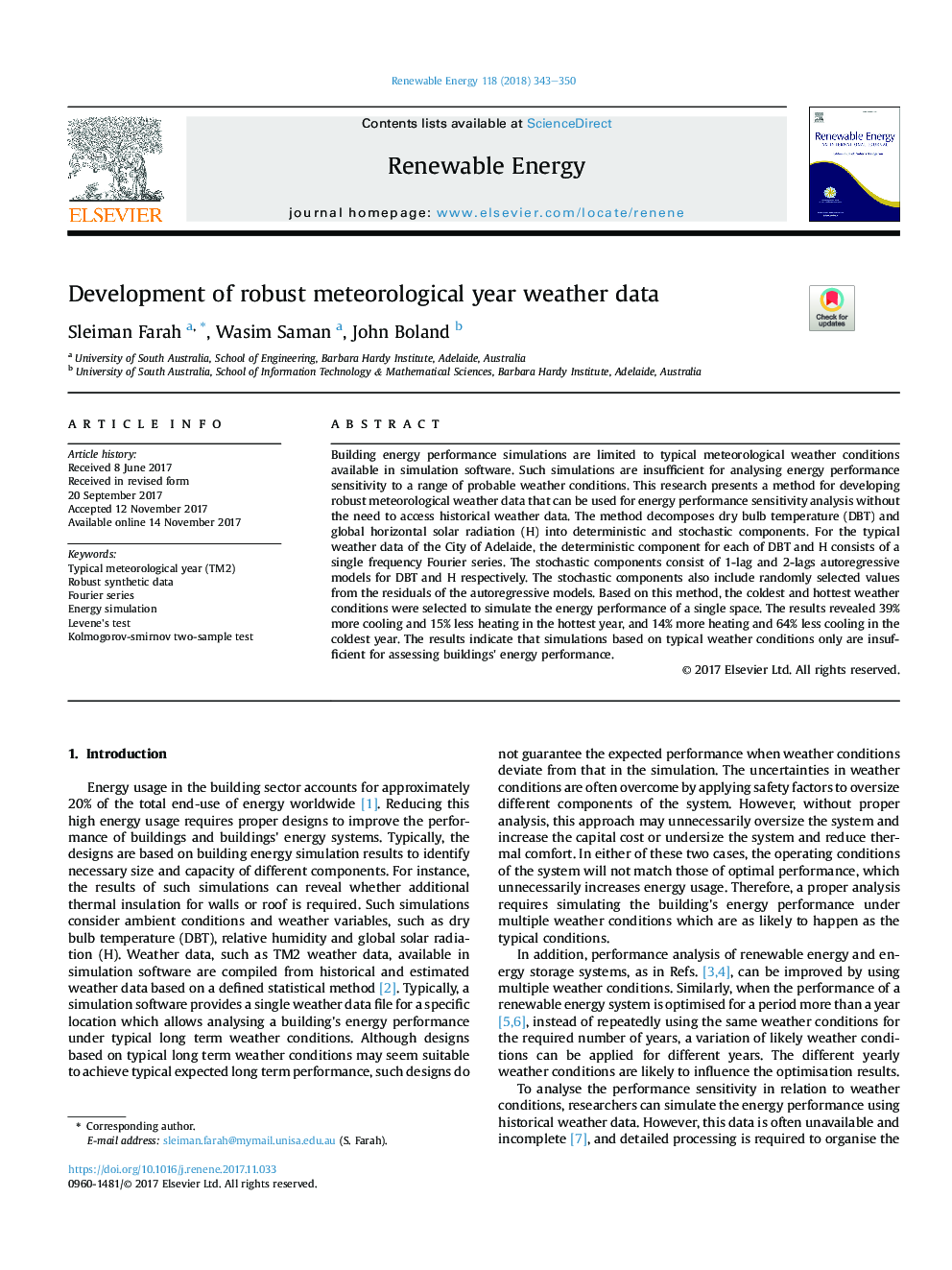| Article ID | Journal | Published Year | Pages | File Type |
|---|---|---|---|---|
| 6764993 | Renewable Energy | 2018 | 8 Pages |
Abstract
Building energy performance simulations are limited to typical meteorological weather conditions available in simulation software. Such simulations are insufficient for analysing energy performance sensitivity to a range of probable weather conditions. This research presents a method for developing robust meteorological weather data that can be used for energy performance sensitivity analysis without the need to access historical weather data. The method decomposes dry bulb temperature (DBT) and global horizontal solar radiation (H) into deterministic and stochastic components. For the typical weather data of the City of Adelaide, the deterministic component for each of DBT and H consists of a single frequency Fourier series. The stochastic components consist of 1-lag and 2-lags autoregressive models for DBT and H respectively. The stochastic components also include randomly selected values from the residuals of the autoregressive models. Based on this method, the coldest and hottest weather conditions were selected to simulate the energy performance of a single space. The results revealed 39% more cooling and 15% less heating in the hottest year, and 14% more heating and 64% less cooling in the coldest year. The results indicate that simulations based on typical weather conditions only are insufficient for assessing buildings' energy performance.
Keywords
Related Topics
Physical Sciences and Engineering
Energy
Renewable Energy, Sustainability and the Environment
Authors
Sleiman Farah, Wasim Saman, John Boland,
